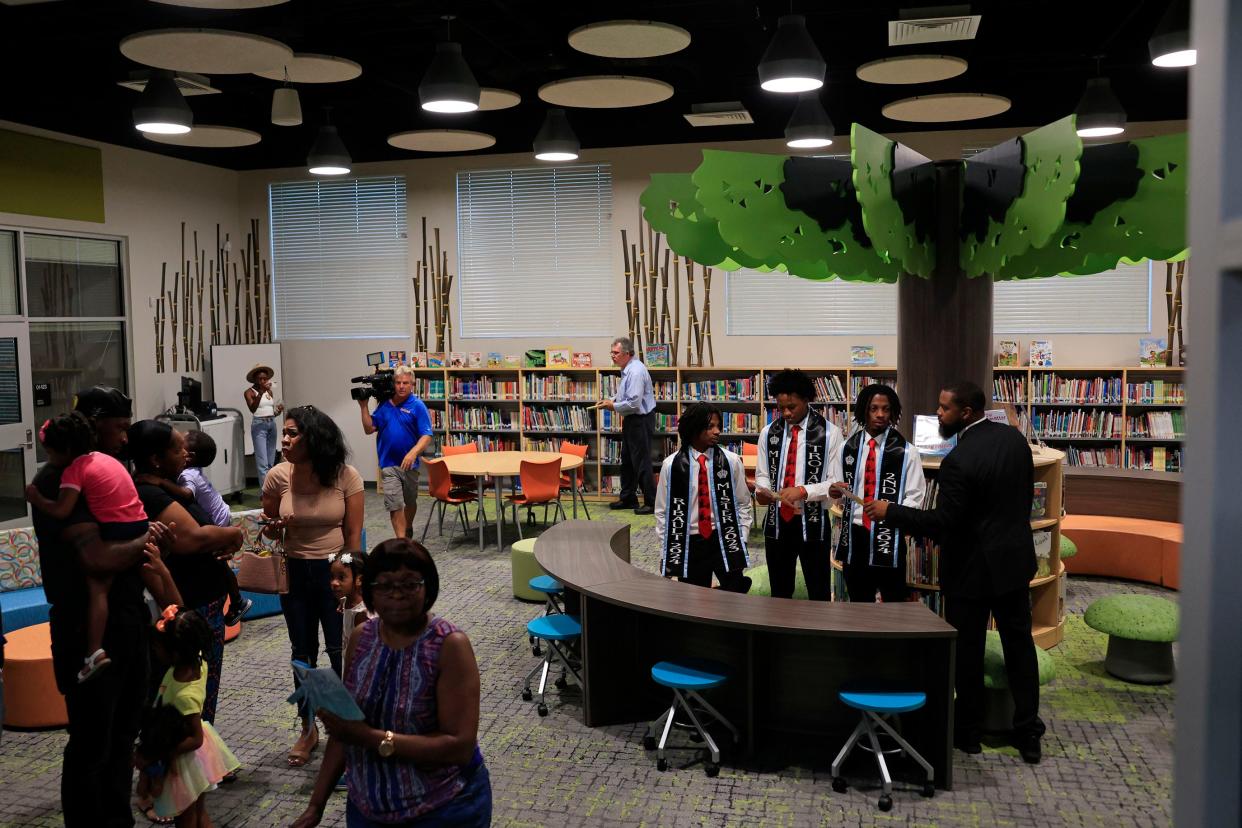Jacksonville community advocate: Surtax oversight committee stymied by legislative changes

I believe that most residents want a strong public education system and that includes providing students with well-maintained facilities and current technologies.
The Citizens Sales Surtax Oversight Committee is mandated by the 2020 Duval County referendum for a half-penny sales tax to monitor $1.9 billion for upgrades to aging schools and to ensure funds are used for facility improvements through 2035. I’ve attended most quarterly meetings as a volunteer advocate with prepared public comments. In January 2024, we will have 11 years to go.
At the Nov. 15 quarterly meeting, committee members received some striking news:
The district’s operations staff reported the Master Facility Plan projects are progressing on schedule with 30 projects in design, 96 projects in construction and 16 completed. This includes the opening of the first replacement school, Rutledge H. Pearson Elementary, in August 2023.
Based on the 2018 Master Facility Plan of $1.9 billion, the recast cost projection adjusted for 2024 overruns for district-run school projects through completion could be $3.9 billion. Factors affecting this increase in current cost trends are higher interest rates, post-pandemic material supply chain inflation, low unemployment rate and higher wages. Additionally, $860 million (over 20%) of school property millage and sales surtax will be allocated to charter schools by current statute.
In 2021, capital outlay criteria were changed to allow the merger of new corporate-run charter schools with older charter schools (as feeders); thus, meeting a two-year operational criterion for the new school. In 2023, Duval County Public Schools finance staff explained that statutory rules for capital outlay sharing lowered the standards for charter school eligibility for tax revenue.
A charter school that receives two consecutive grades of “F” (instead of one) or three consecutive grades lower than a “C” (instead of two) shall not be eligible for capital outlay funding. Also, a new statutory formula for capital outlay full-time equivalent/enrollee changed the eligibility criteria to reduce the enrollment base for district-run schools.
These changes have resulted in retroactive adjustments for all schools (district-run and charter) to the absolute benefit of some charter schools. The term for this type of adjustment is called a “true-up.” Through September 2023, $1.867 million was credited to five charter schools, with KIPP receiving $1.047 million and IDEA receiving $584,000.
These funds reduced the share for the district Master Facility Plan. The analysis of the proposed rules states:
“The Agency (DOE) has determined that the rule is not expected to have any adverse impact on economic growth, business competitiveness or any other factors listed in s. 120.541(2)(a), F.S., and will not require legislative ratification. No increase in regulatory costs are anticipated because of the rule changes.”
This does not sound like a credible assessment of legislative impact to me.
What can be done about it? You can personally advocate by contacting your state legislators in the Senate and House of Representatives. Inform them about the impact such changes are having on the entire Duval County school district in teaching standards for our students and costly capital outlay in underperforming schools. This is magnified throughout Florida.
The oversight committee sees information that shows many charter schools, regardless of need or publicly disclosed planned use, are using sales tax revenue for facility lease agreements. Some are even accumulating “unspent revenue.” During the 2023 legislative session, corporate charter school lobbyists pushed through HB 443, which allows a charter school to loan its excess revenue to another school within or outside of a district.
We do not want education funds intended for Duval County students to be diverted to another county or state.
Looking out for the custodians: Union bid to raise Duval school janitors' pay to $15 an hour brought before School Board
The 2024 legislative session begins Jan. 9. Our Duval County Legislative Delegation must accept responsibility and implore the legislature to give back to local districts the authority to provide oversight of local facility funding and of locating schools based on demographic need.
We must ask the delegation to:
Preserve local (school district) sponsor authority to require charter school reporting to the district all needed information used for public accountability and oversight of all tax revenue, expenditures and contract compliance.
Support local sponsor authority and parity among district-run and charter schools by designating a required order of capital outlay expenditure from tax revenue sources with the last source being school district referendum for sales tax with restricted use.
Rescind 2022 HB433 to disallow loans between charter schools, within or outside of a district.
Calculate the capital outlay full-time equivalent/enrollee criterion for charter and district-run public schools to include all enrolled students. Currently, pre-kindergarten and virtual education students who participate in the classroom are omitted.
Provide Public Education Capital Outlay funding to districts for additional costs associated with building hurricane-ready schools for use as community shelters, with an estimated cost of approximately $3 million per school.
Marion Tischler, community advocate and volunteer, Jacksonville
This guest column is the opinion of the author and does not necessarily represent the views of the Times-Union. We welcome a diversity of opinions.
This article originally appeared on Florida Times-Union: Duval education funds must not be diverted to other school districts

